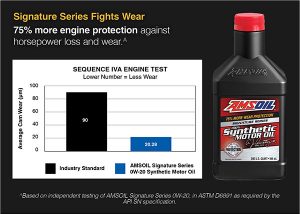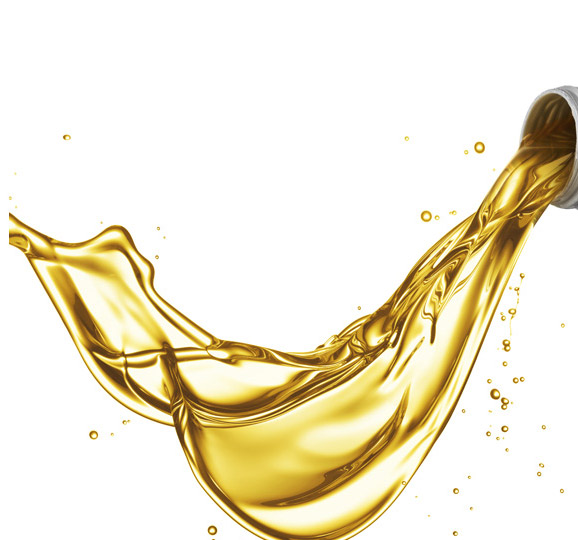Motor oil today is made of two fundamental components: base oil and additives. But that wasn’t always the case. In the 1930s, someone decided to add wax modifiers to base oil to address the problem of wax residue after the refining process. Thus began the practice of putting additives in motor oil to augment base oil performance.
In this post, we’ll look at the different chemical additives in motor oil. These additives enhance the lubricant by performing two critical functions: lessen destructive processes and enhance the beneficial properties of the base oil.
If you’re interested in aftermarket oil additives (which you add to your motor oil) and whether they work, check out the post below.
Additives in motor oil: job description
Additives in motor oil have three essential functions:
- Protect metal surfaces
- Expand the lubricant’s application range
- Extend lubricant life
Additional considerations for additive selection include the ease with which they can be handled by formulators, stability in storage, toxicity and aroma. Yes, even additive smell is a serious consideration.
Surface-protection additives
Additives in automobile motor oils address five kinds of problems with regard to surfaces.
Anti-wear agents reduce friction and wear while helping prevent scoring or seizure. Through chemical processes, they help prevent metal-to-metal contact. Anti-wear agents include…
- Phosphates
- Organic sulfur and chlorine compounds
- Sulfurized fats
- Sulfides
- Disulfides
Corrosion and rust inhibitors help prevent corrosion and rust on internal engine parts. They include…
- Zinc dithiophosphates (ZDDP)
- Metal phenolates
- Fatty acids
- Amines
Detergents neutralize varnish and sludge to help keep surfaces clean and deposit-free. They include…
- Metallo-organic compounds of sodium, calcium and magnesium phenolates
- Phosphonates
- Sulfanates
Dispersants help keep insoluble contaminants dispersed in the lubricant. Polar attraction bonds the contaminants to the dispersant molecules, preventing them from agglomerating. They include…
- Alkylsuccinimides
- Alkylsuccinic esters
- Mannich reaction products
Friction modifiers help reduce friction and maximize fuel efficiency. Typical friction modifiers include…
- Organic fatty acids and amides
- High-molecular-weight organic phosphorus
- Phosphoric acid esters
Performance additives
Additives in motor oil are also used to improve the oil’s cold-flow ability, protect seals and increase viscosity stability.
Pour-point depressants modify wax formation to help lubricants flow at lower temperatures and deliver better wear protection at start up. They include…
- Alkylated napthalene and phenolic polymers
- Polymethacrylates
- Copolymer esters
Seal-swell agents help swell elastomeric seals to prevent leaks. They include…
- Organic phosphates
- Aromatic hydrocarbons
Viscosity modifiers help reduce the rate of viscosity change when temperatures rise or fall. This helps the lubricant provide better performance over a broader temperature range.
- Polymers and copolymers of olefins tend to expand as the temperature rises, counteracting the oil’s tendency to thin.
- Other viscosity modifiers include methacrylates, dienes and alkylated styrenes.
Protective additives
There are also additives in motor oil classified as “protective” additives that enhance the lubricant’s protective properties.
Churning engine parts or gears can mix air into the oil, which results in foam. If foam bubbles collapse, metal components can contact, inviting wear.
Anti-foamants reduce the surface tension of foam bubbles and speed their collapse. Without defoamers, foam would gurgle out of the dipstick tube when customers came in for an oil change. Common anti-foam additives include…
- Silicone polymers
- Organic copolymers
While we need oxygen to live, too much can be bad for lubricants. Oxidation increases the rate at which a lubricant breaks down and becomes ineffective. Antioxidants decompose peroxides and terminate free-radical reactions to slow oxidation and extend lubricant life. Typical antioxidants include…
- Zinc dithiophosphates
- Hindered phenols
- Aromatic amines
- Sulfurized phenols
To slow oxidation, formulators also use metal deactivators to reduce the catalytic effect of metals on the oxidation rate. These compounds form an inactive film on metal surfaces and include…
- Organic complexes containing nitrogen or sulfur
- Amines
- Sulfides
- Phosphites
Motor oil is a complex system
As you can see, the additives in motor oil are part of a complex system in which each component is harmoniously tuned to provide your engine the best possible protection. The chemists who design motor oil carefully consider how various base oils and additives will interact with each other and function inside the engine or lubricated system. Miscalculating can reduce the oil’s effectiveness.
One example is the battle between corrosion inhibitors and anti-wear additives. Sometimes these additives compete for sites on a metal surface. Using too much corrosion inhibitor can diminish the oil’s anti-wear properties.
Additives in motor oil themselves can have disadvantages if improperly used. Here are some examples of the negative effects additives may cause.
- Detergents and anti-wear additives can promote deposit formation in high-temperature areas
- Detergents and dispersants can minimize the effectiveness of anti-foam additives and promote foam
- Certain additives can cause corrosion when exposed to high temperatures
- Too much anti-foam additive will in itself result in foam
What it means for you
Motor oil and other lubricants are finely balanced systems that are sensitive to the addition of other chemicals. For the best protection and longest lubricant life, follow these guidelines:
Avoid mixing lubricants – While nearly all conventional and synthetic motor oils are compatible, avoid mixing them if you can. Sure, topping off the engine with another oil brand won’t result in engine damage, but it’s best to simply use the same oil all the time. If you have to mix lubricants, drain the system and refill as soon as you can .
Avoid using aftermarket oil additives – Store shelves are littered with aftermarket additives that promise to increase fuel economy, reduce wear or restore an old engine to like-new. Adding them to your oil disrupts the oil’s chemistry and may reduce its ability to protect your engine. When you’re using a good motor oil, there’s no need to modify it with an aftermarket additive.








I have recently purchased a new,2017 Subaru Forester. I have been told that the oil that Subaru uses is junk. I have used Amsoil in the past in vehicles, and I am currently using it in my 2001 Harley. I would like to know where in my area can I buy something suitable for this new car.
I live in South Point, Ohio, across the Oh River from Ashland, Ky. Ten miles from Huntington, W Va. Any help would be great.
Thanks in advance.
Hi Jay,
Go to our AMSOIL Locator on http://www.amsoil.com, enter your ZIP code and you’ll find everywhere near you to buy AMSOIL. If you need to know which products you need in your Subaru, check out our Product Guide.
Thanks for reading, and thanks for using AMSOIL products.
Is Marvel Mystery oil an approved oil additive for use with AMSOIL products?
Hi John,
No, we don’t recommend using aftermarket additives with AMSOIL synthetic lubricants.
I understand that you don’t recommend using aftermarket additives with AMSOIL synthetic lubricants. But the engine on my 2000 Volvo S80 with 200k miles is louder than usual, possibly due to worn piston rings or worn engine, and seriously thinking of using:
1- CERA TEC Engine Oil Additive (300ml Can) – Liqui Moly LM20002; or
2- MoS2 Anti-Friction Engine Treatment (300ml Can) – Liqui Moly LM2009.
Have you ever heard of, know of, seen studies, or experienced real life examples of ADVERSE affects of using such oil additives with Amsoil 5w-30 Signature Series? If not, do you know which of the 2 additives is better?
Hi Steve,
I know it’s not the answer you want to hear, but we simply don’t recommend aftermarket oil additives with our oils. They’re unnecessary and, in fact, can disrupt the formulation and do more harm than good. Also, using aftermarket oil additives will void the AMSOIL Limited Warranty.
Thanks,
John
I use a 0W-20 AMSOIL Signature Series in the green cap in my wife’s 17 Subaru Forrester no additives works very well and gets good mileage also. I’ve been dealing with AMSOIL for 20 years. I use it in my DEISEL truck, cars and motorcycle and I am a firm believer!!!